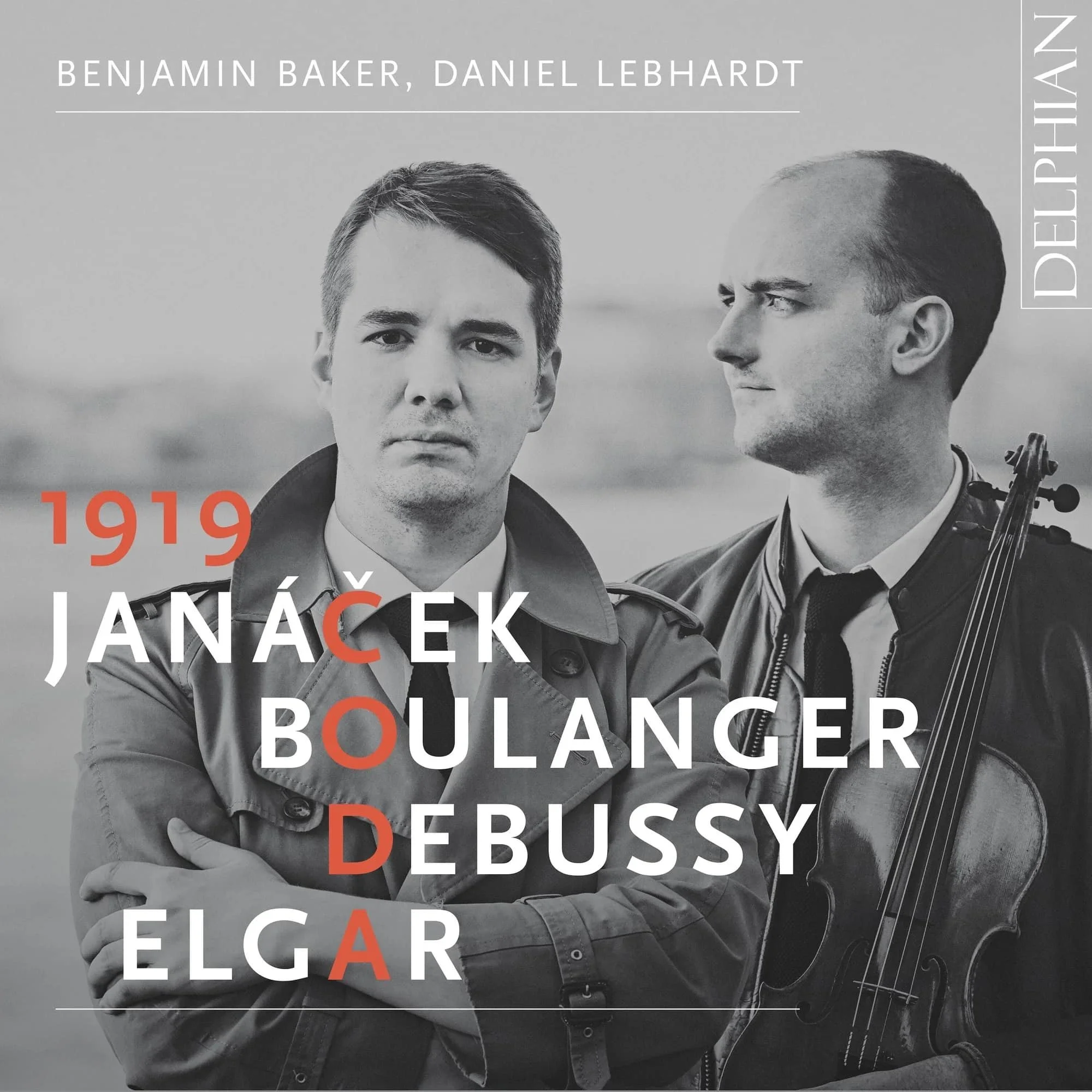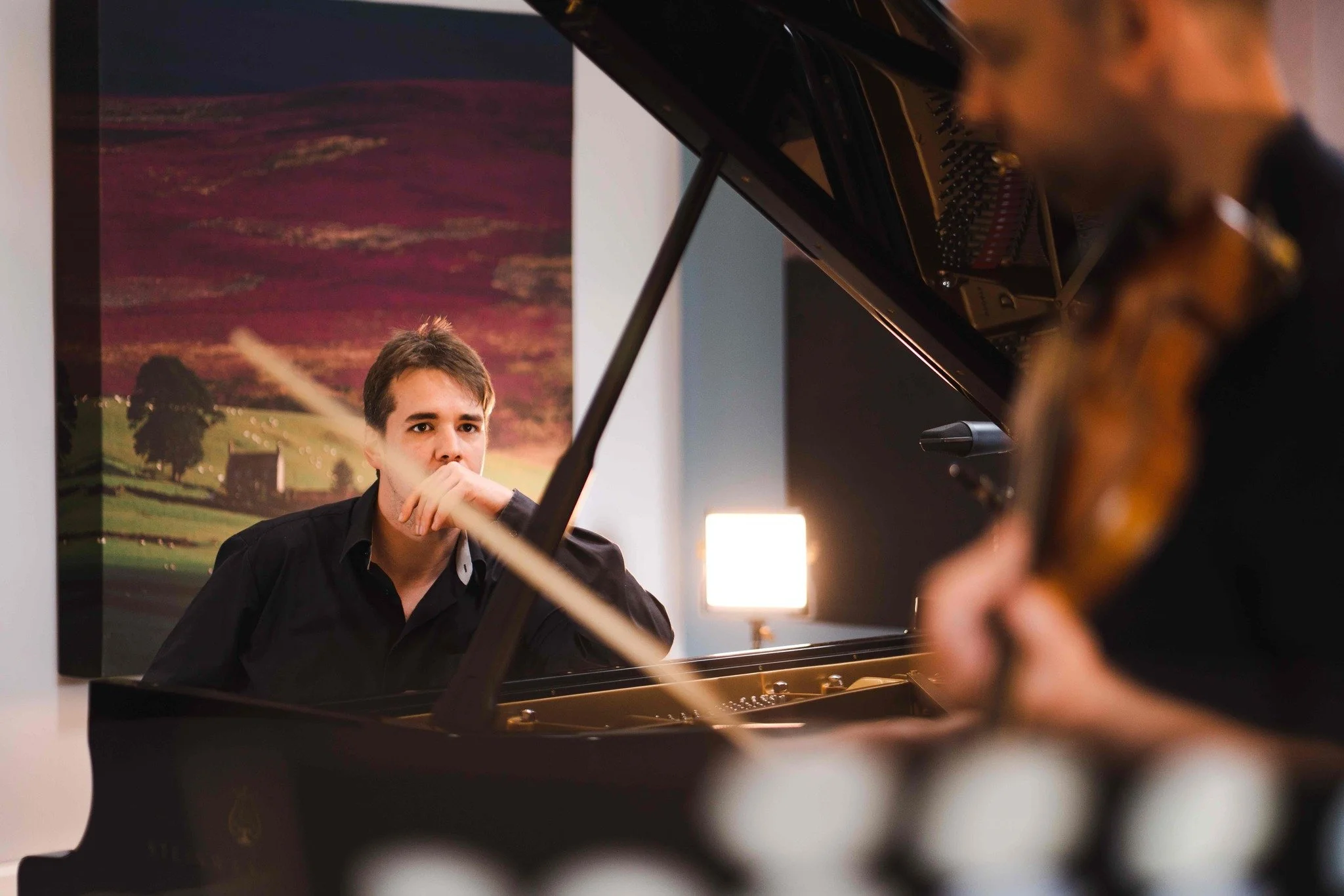1919 Coda: Janáček, Boulanger, Debussy, Elgar - expressive accord
Music by four composers working during the troubled years of World War 1 features on a stunning new album, “1919 CODA: Janáček, Boulanger, Debussy and Elgar”. Beautifully played by two London-based musicians, New Zealand violinist Benjamin Baker and Hungarian pianist Daniel Lebhardt, it’s an enticing collection of highly expressive music, inspired by the composers’ personal circumstances within wider geo-political unrest.
Violin Sonatas from Czech Leos Janáček and Englishman Edward Elgar open and close the album, with three small works from Lili Boulanger alongside a central Sonata by her French compatriot Claude Debussy. The latter is a highlight, a dazzling, brilliant interpretation of one of Debussy’s last works before his untimely death in 1918. This often-played Sonata reveals the intuitive musicianship and effortless rapport of these performers, characteristics of the whole album.
Daniel Lebhardt and Benjamin Baker
…intuitive musicianship
Playing Debussy’s subtle music with loving care, Baker and Lebhardt offer marvellous variety of tone and pace through many twists and turns, characterful fragments dropping like flashes of light into darker textures. In the whimsical fantasy of the playful second movement, their sound is featherlight, their rubato exquisite. They then toss off the demands of the fleet Très animé finale, slowing for languid exchanges, building excitement towards a dramatic ending.
Lili Boulanger died aged just 24, having suffered ill-health for most of her life. At 19, she was the first woman to receive the prestigious Grand Prix de Rome, and her short works here, especially the lovely D’un matin de printemps (Of a spring morning), confirm French music was deprived of a major figure by her early death. In playing ranging from delicate to dramatic, Baker and Lebhardt find the essence of Boulanger’s deliciously French style.
Janáček’s Sonata was inspired by thoughts of war. “A gleam of sharp steel flashed through my mind…clanging in my troubled imagination,” he wrote later, as quoted in an excellent sleeve note by musicologist Nigel Simeone. Baker’s lovely tone impresses at once and Lebhardt displays the sensitive musicianship we associate with the Hungarian Liszt Academy, where he studied before moving to London. The work has a distinctive tonality and an edginess most evident in the final Adagio, the violin interrupting a romantic theme with brusque, puzzling little gestures.
Violinist Benjamin Baker
…recording 1919 CODA album
Finally we cross the Channel to the open English sounds and harmonies and the forthright expression of Elgar. Baker and Lebhardt, like the composer, let it all unfold luxuriously. Emotions, occasionally wistful, are close to the surface. These versatile musicians, listening acutely to each other, maintain their expressive accord to the end of a deeply satisfying album.
1919 CODA: Janáček, Boulanger, Debussy and Elgar Benjamin Baker (violin) Daniel Lebhardt (piano) (Delphian)
You can read about Benjamin Baker’s chamber music festival in New Zealand, At the World’s Edge, here
This album review was first published in NZ Listener, issue September 9, 2023



